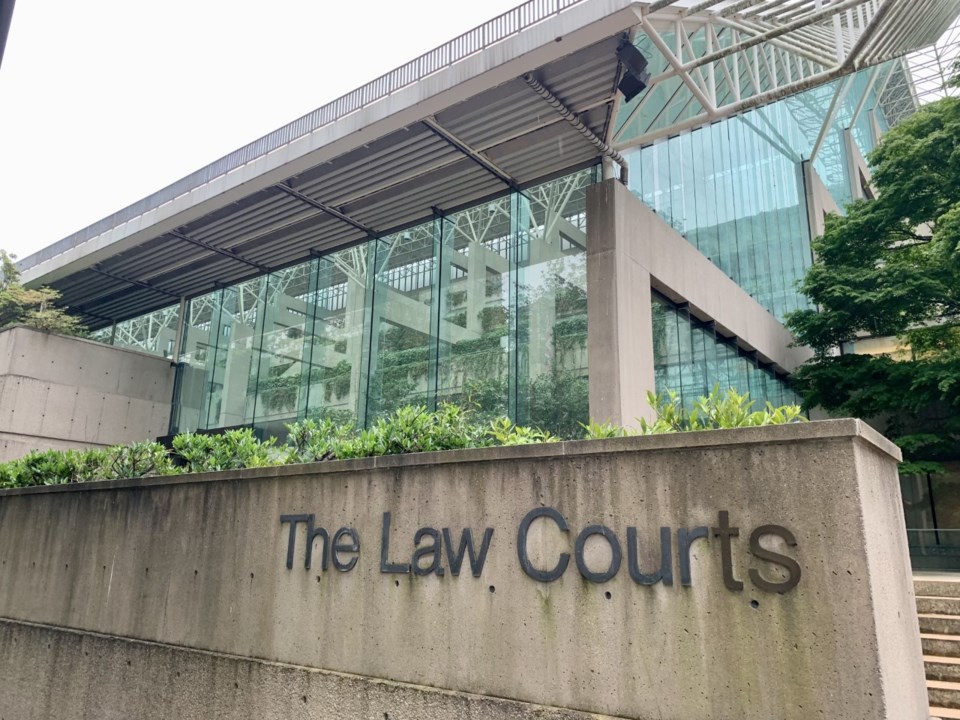A woman captured on public Vancouver police video surveillance is not an invasion of her privacy, a B.C. Supreme Court judge has ruled.
“A violation of privacy, if was to occur as a result of a (public safety trailer – PST) recording, would not be as a result of the recording itself, but rather from the publication or disclosure of certain information about a person without their consent or at least ensuring as far as possible that their identity is masked,” Justice Bruce Elwood said in his Dec. 16 decision.
Karina Papenbrock-Ryan alleged her privacy and her Charter rights were violated when the Vancouver Police Department (VPD) located a mobile trailer equipped with cameras and recording equipment in her neighbourhood.
But, found Elwood, “any recording of Ms. Papenbrock-Ryan was an image of her on a public street, doing nothing remarkable. The VPD did not access, distribute or publish any images of Ms. Papenbrock-Ryan. There was, and remains, no risk of disclosing any personal information about her.”
What happened?
On April 3, 2020, the VPD deployed a PST to the sidewalk outside the Chinese Cultural Centre on East Pender Street in response to racist graffiti left on the windows with threats of violence against Asian people and references to the Holocaust, Hitler and the COVID-19 pandemic.
Elwood said the trailer was clearly marked as a police vehicle, and equipped with four cameras mounted on a pole that extended approximately 10 metres above a small mobile trailer.
Police recorded footage captured by the cameras and stored it on a hard drive in the trailer.
“The system was configured to overwrite and delete the footage after four days unless an investigating officer asked for data to be preserved,” Elwood said. “With the exception of a single screenshot, no data was preserved or reviewed from the deployment to the CCC.”
Elwood said Papenbrock-Ryan lives about one and a half blocks west of where the PST was located.
“She estimates that she walked through the field of view of the PST at least 10 times without knowing what it was,” Elwood said. “She learned that it was equipped with cameras, and began taking a detour to avoid it because, she testified, she did not want to be surveilled by the state.”
What Papenbrock-Ryan wanted from the court was a declaration that mass video surveillance in public places requires prior judicial authorization, and an injunction prohibiting the VPD from deploying a PST without a general warrant.
The arguments
The defendants — the City of Vancouver and Chief Constable of the Vancouver Police Department — argued Papenbrock-Ryan has failed to prove on a balance of probabilities that she was recorded by the cameras on the PST.
In the alternative, they argued that there was no search or breach of privacy because the VPD was not looking for information about Papenbrock-Ryan.
And, they further argued, she did not have a reasonable expectation of privacy over her image or conduct while she was in public view.
“The defendants note that Ms. Papenbrock-Ryan knew she was being recorded by CCTV cameras at Jack Chow Insurance, Bamboo Village, Vancity and likely other businesses she frequents on a regular basis,” Elwood said. “They also note that she sat for a video-recorded interview, in her home, by CTV News, and openly discussed her role as the plaintiff in this case.”
Elwood noted Papenbrock-Ryan consented to being recorded by private businesses and CTV News. “She did not consent to being recorded by the VPD,” he said.
What the judge found was that the temporary image of her on the local hard drive of the PST computer did not reveal any biographical information or disclose anything that would tend to identify her or reveal details of her lifestyle or personal choices.
“I find that Ms. Papenbrock-Ryan’s subjective expectation of privacy was not objectively reasonable,” he ruled.



